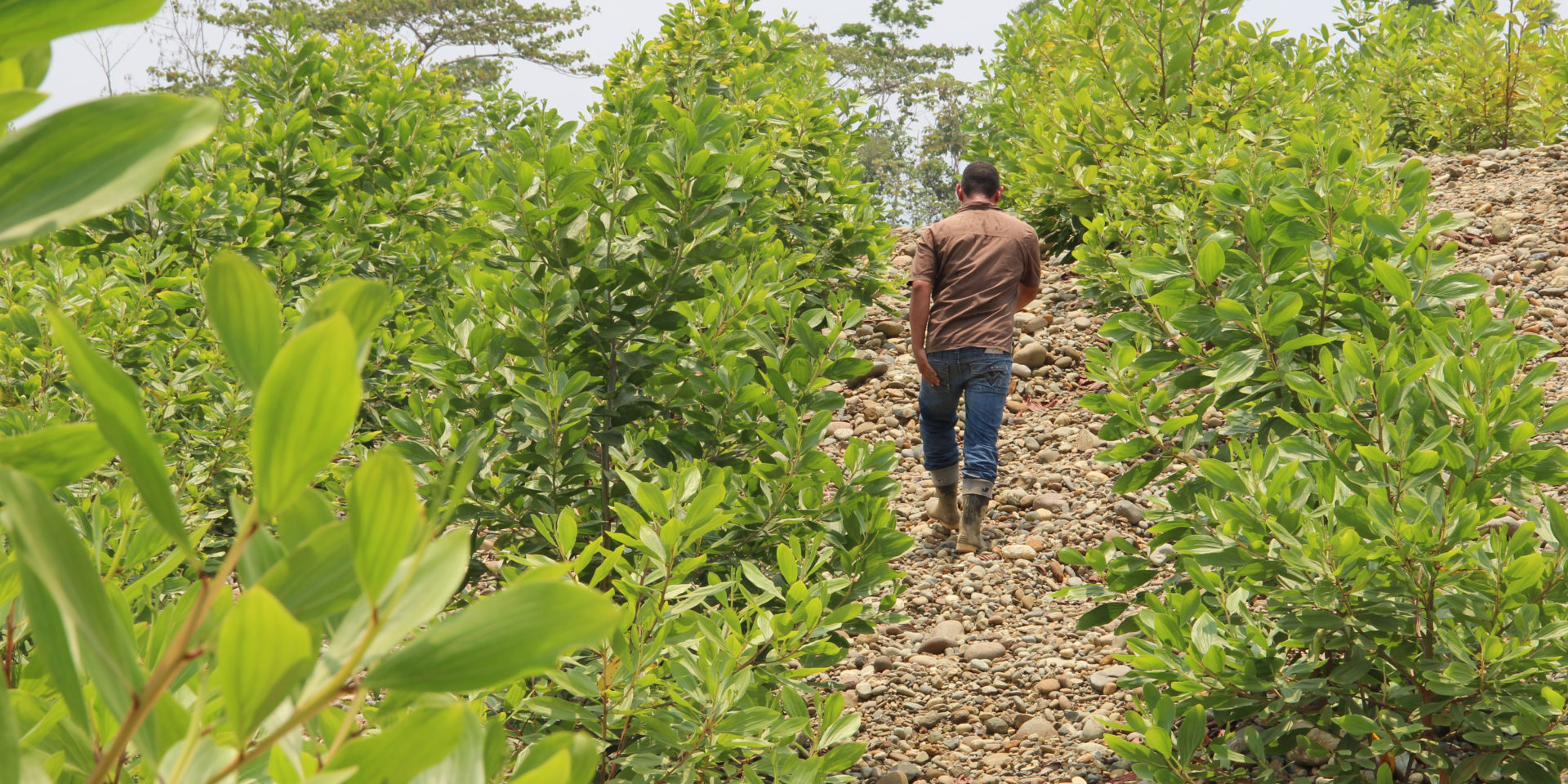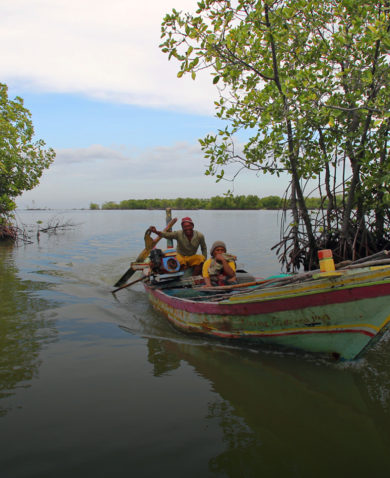
A Paradigm Shift is Necessary for REDD+ to Be Sustainable
November 16, 2016 | 4 Minute ReadMichael Brown discusses how social contracts could revamp REDD+, which is a framework for reducing deforestation and the resulting carbon emissions.
In 2013 I wrote a book called Redeeming REDD: Policies, Incentives, and Social Feasibility for Avoided Deforestation, published by Earthscan.
In the book I argue that reducing emissions from deforestation and forest degradation (REDD, and the latest variant known as REDD+), needs a suite of enabling conditions, independent of market viability as well as measurement, reporting and verification (MRV) systems in order to be redeemed as an effective approach. REDD projects, it was hoped, would feed into compliance markets through what has become known as a jurisdictional approach to accounting for carbon sequestered through avoided deforestation, one objective of the United Nations Framework Convention on Climate Change (UNFCCC). When taken to scale, such projects are seen to have a major impact on global greenhouse gas (GHG) emissions from local jurisdictional levels through national levels, when fully aggregated across countries.
Despite over 10 years of effort, replicable and scalable methods remain deficient. A marketplace for REDD-generated carbon credits (or verified carbon units of any kind) remains wanting. While climate finance is theoretically appealing, it remains nascent. Sustainable reductions in deforestation remain limited. For the moment, business as usual in unsustainable land use (and frequent illegality) have the upper hand in comparison with what REDD projects can offer. In addition, many civil society organizations have questioned UNFCCC processes, as the logic of REDD/REDD+ for many civil society groups remains wanting.
Last year I was approached by two university professors to contribute a chapter to an edition called The Carbon Fix. The goal was to build on some of the recommendations made in Redeeming REDD, most specifically, as related to the notion of employing social contracts — a negotiated understanding between key stakeholders that makes sense of REDD projects and processes — as a foundation for rationalizing the complex, some would argue, overly technocratic project that REDD/REDD+ has become. In my chapter contribution, I argue that social contracts are a key precondition for achieving socially feasible REDD programming, but that establishing viable social contracts is anything but easy to achieve. This week, I am presenting these views at the American Anthropological Association Annual Meeting in Minneapolis. I argue that what the UNFCCC provides on the one hand, and voluntary processes on the other, is insufficient from a sustainability perspective; climate finance risks remain too high for investors, institutional arrangements are ineffective, and accounting system credibility is lacking for many as well. In short, too many loose ends impacting sustainability remain to be worked out.
I will be presenting my proposal for social contracts as the basis for achieving and sustaining REDD/REDD+ projects, whether they are for the voluntary market or the latest trend from COP 21, for jurisdictional projects that feed into UNFCCC intended nationally determined contributions (INDCs). In the latter, local project-generated REDD/REDD+ carbon credits will be accounted for in national accounting systems, enabling countries to meet their UNFCCC commitments for GHG emissions reductions. The Paris Agreement’s central aim is to strengthen the global response to the threat of climate change by keeping a global temperature rise below 2 degrees Celsius above pre-industrial levels this century, if not lower. Here, REDD/REDD+ programs will be a modest, albeit important contributor, as “gross deforestation” contributes 3 billion tons of GHGs annually, or an estimated 10 percent of GHG emissions calculated for the 2000 to 2005 period for which data is most accurate. It is believed that REDD/REDD+ reductions at the national level are far more certain than one-off offsets to achieve global emissions cuts, because REDD/REDD+ is tied to a national commitment to an absolute reduction in a country’s overall emissions.
So why are social contracts needed at all? Why isn’t the UNFCCC enough to achieve these objectives?
While one could argue that at an international level via the UNFCCC, a social contract for GHG mitigation containing guidance for REDD/REDD+ already exists, so that anything additional would be superfluous. I argue that establishing a social contract — i.e. a consensus framework — that enables stakeholders to co-produce objectives, procedures, benefit and cost sharing, and monitoring and evaluation is fundamental to success. Such a framework replicated across countries would go far in supporting UNFCCC objectives, as more representative public consultation processes, greater commitment to achieving free, prior, and informed consent (FPIC), and identification of minimum threshold criteria for feasible REDD/REDD+ projects would be the result. These would incorporate local perspectives and promote local ownership which to this point have been seen as lacking.
Arrangements for accomplishing this in each participating country would be a first priority to work out between stakeholders involved in projects, local jurisdictions, and national governments. I argue that impact investors could play a determinant role in catalyzing this framework, as fresh incentives are needed to compete with business as usual, where few parties perceive REDD/REDD+ as competitive with the opportunity costs of forgoing current patterns of unsustainable resource use. Negotiating new working relationships in REDD/REDD+ is therefore essential. National governments who establish enabling conditions, heretofore disincentivized local peoples, private sector groups with competing interests to local communities, and local governments who interface between all key actors on the ground, must establish new relationships for REDD/REDD+ to succeed. Figuring out how, and what these would be, is key.
This approach would not contradict accepted validation or auditing processes. It would simply provide a logical framework for REDD/REDD+ to work. Conversely, this approach will demand mutual accountability, and place a burden on stakeholders to be more rigorous on all aspects of REDD/REDD+ programming. Achieving amplified transparency and accountability absent a social contract appears unrealistic. It also would diminish the hefty responsibility to avoid conflict of interest on certifying bodies, who are often remunerated by the very agencies for which they are validating methodologies or verifying compliance. Prioritizing and negotiating social contracts will enable all stakeholders to become more accountable, avoid conflict of interest, and promote sustainable outcomes.




































